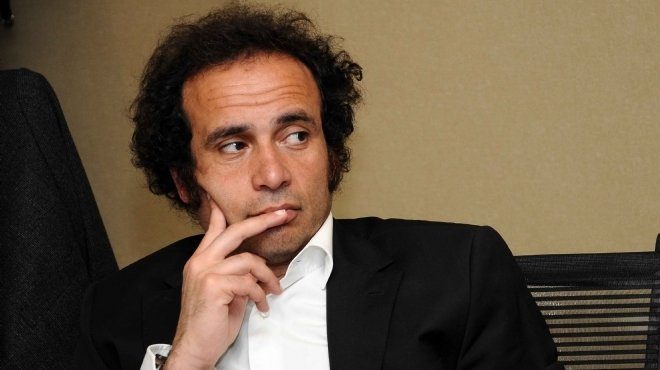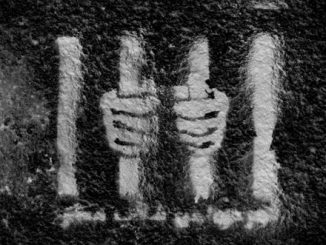
By: Amr Hamzawy*
The alliance of secular elites (liberal and left-wing) with the military institution and the security services to deviate from the democratic procedures in the summer of 2013 was not only motivated by the failure of the administration of President Mohamed Morsi to lift the country out of its crises, or the President Morsi’s issuance of the extraordinary Constitutional Declaration in November 2012, or what was introduced at the time as an act of necessity to protect Egypt from the risk of a religious tyranny and preserve its national identity. In fact, the anti-democratic stance, adopted by the secular elites during that summer, the support provided by the majority of them to the return of authoritarianism, and their silence on the catastrophic human rights violations represented a direct translation of a long historic legacy that has identified the essence of the relationship between the secular elites and the successive regimes since the nineteenth century, and also between them and the activities of the community and citizens in general.
In the wake of the emergence of the modern national state (the State of Mohammad Ali Pasha, who ruled the country between 1801 and 1840), the emergence of the secular elites was closely related to the alliance with the regime and the existing power. Their major sayings and the patterns of the exercise of their political and community role has since crystallized in the context of a permanent defense of the rule, supporting the official policies and justifying its failures and negative results (with the exception of transient periods). The secular elites saw in the national state only the power of enlightenment, modernization, and progress that can overcome ignorance, poverty, and backwardness, ignoring the realities of oppression, repression, violation of freedoms, and the monopoly of wealth. They only classified the rulers as protectors of the idea of secularism, and the separation of religion from the state. The secular elites even approved the regimes’ employment of the religious symbols and statements to legitimize a false public acceptance of rulers. They did not even show dissatisfaction toward abridging the active institutions and agencies in the country to the military and security agencies. Also, they did not object to the abolition of the political and party pluralism, which lasted for a few decades after the 1919 revolution, by the post-1952 rule. They also turned a blind eye to the disruption of military-civil relations in a way that established an explicit authoritarianism. Moreover, the secular elites did not resist the extension of the influence of the military-security component to the entire public space and the systematic violation of the intellectual and academic freedom, as well as the freedom of creativity – which traditionally come at the forefront of what the secular elites are interested in.
*’**
In return for their organic association with the regime and exploiting the power of the existing authorities, the secular elites always recollected chronic fear and apprehension toward the community and people in general. Since the major theories and sayings of the Egyptian secularists were crystallized, the community has been classified as an irrational entity and a vast space, where “religious obscurantism” and “backward formations” work out their destructive repercussions. Accordingly, the main task of the state and rulers has become directing the community of its tattered condition to surpass its irrationality and obscurantism with the help of the secularists and through the modern education and upbringing systems. Up to this day, the secularists have not overcome their fear of the community despite the rationality, and the progressiveness of the society, as well as its activities compared to the state and its rulers. This has been prominent on many important occasions in Egypt’s modern history from the Orabi movement that resisted the British occupation, the 1919 revolution which had received a sweeping popular support, the societal cohesion in the wake of the 1967 defeat, and the revolution of January 2011, which wanted to get rid of authoritarianism and restore the contents of justice and truth, freedom and equality. Up to this day, the secularists’ fear of the society is still the primary interpreter for their promotion of non-democratic statements between 2011 and 2013 – including claiming a distinction between the relative weight of the votes of the educated and the uneducated in referendums and electoral benefits, passing documents of above-constitution principles for the adoption of a status of “a state above the state” for the military institution and enabling it of the constant interference in the affairs of governance and power. Up to this day, the secularists’ fear from the general public is still a powerful motive for them to launch overbearing judgements against the preferences of the political and electoral majority (e.g. The legends of getting the electoral votes through the distribution of sugar and oil), to ally with tyranny and authoritarianism, and to turn against democracy for silencing the citizen and deporting him from the public space, with the aim of subduing and subjecting the irrational society.
***
So it is not surprising at all that the secular elites, since the nineteenth century to the present day, have adopted the approach that the national state should dominate the society, control the public space, and enforce the opinion of the one and the voice of the one on the people. However, the secularists do not connect between the concept of the power of the state and the concepts of justice, truth, freedom, equality, excluding the catastrophic accumulated legacy of the repressive state and the authoritarian rule. So, it is also not surprising at all that the secular elites promote concepts of explicit totalitarian essence, such as the principles of “national necessity”, which obliges to line behind the rulers, the “state of exception”, which gives rulers a comprehensive license for storming the rule of law and subjecting the society and the citizen, and that the “defending of the security, stability and the achievement of economic and social rights are prior to the talk about democracy”. However, it is a complete illusion to expect the emergence of a state security, stability, as well as an economic and social progress under authoritarianism. Despite the moral, humanitarian and political full tampering expressed by the secularists’ defense of the violation of the human dignity, and the abolition of man’s rights and his personal, civil and political freedoms – the idea of secularism was essentially aimed at achieving the human liberation and defending man in the face of the repression and the predominance of both the religious and the secular authorities.
* Amr Hamzawy is an assistant professor of political sciences at Cairo University and former member of the Egyptian parliament.
(Published in Al-Shorouk on Friday, June 24, 2016, and translated for MEO)



